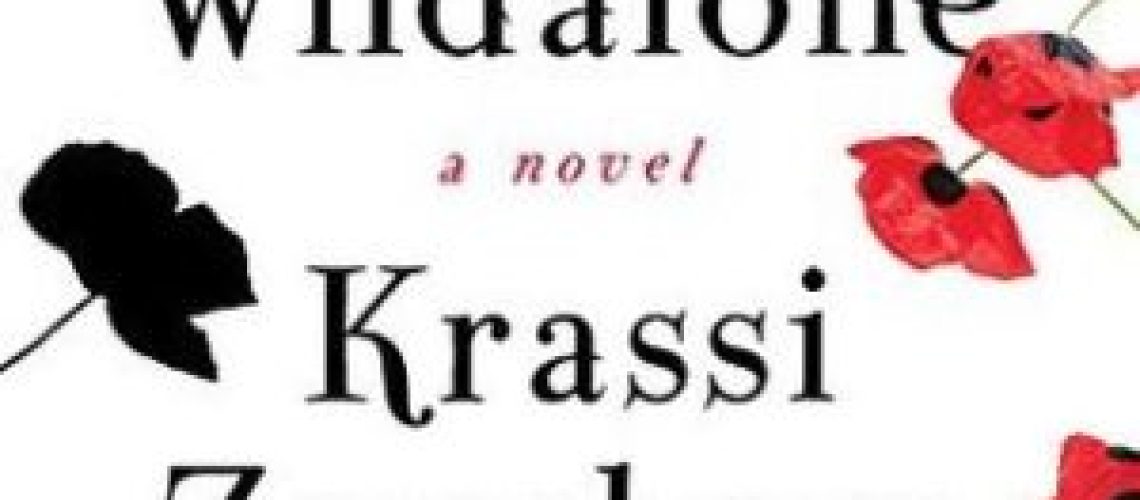Talented pianist and bright student Thea Slavin leaves the familiar confines of family and her Bulgarian homeland for the opportunity of study at prestigious Princeton University in the United States. Compounding the normal cultural shocks of studying abroad in an unfamiliar land, Thea discovers that she has chosen to accept an opportunity from the same school her older sister attended years past, an era mired in family secrets. Thea learns that this sister mysteriously died while at Princeton, leaving a hole in her parent’s lives about which they refuse to speak.
Braving the discomfort that the unfamiliarity of the Princeton campus brings with its upper class American culture and distant memories of the embarrassing unsolved crime involving the elder Slavin daughter, Thea turns full focus to her piano/music studies and the strange draw a course in Greek mythology and its professor holds for her. As she tries to settle into her new life and avoid associations with the past history of her sister with the campus, Thea is pushed rapidly into preparing for major recitals and the prospects of college romances.

The appearance of an elegantly mysterious, brooding admirer at one of her performances strikes Thea with an overwhelming desire to resolve a man who turns out is actually two, brothers who look similar, hidden in romantic shadows and deep secrets. But these brothers, Rhys and Jake, are polar opposites in their intensity and approach to Thea: Rhys domineering and forward, enticing Thea into a physical relationship without much of a chance to think around the passion, and Jake hesitant and reserved, sacrificial and gentle, enrapturing Thea with his words and devotion.
This contrast between the rushing forward into things and the hesitant, maddening delay and uncertainty regarding other things is a central aspect to the atmospheric, gothic nature of Zourkova’s novel. Thea is overwhelmed with how quickly things are unfolding: her studies/practice in music, her relationship with Rhys, the adapting to American life, the sudden revelation of her sister’s strange past. Yet she is also simultaneously hampered by how slowly information and history are revealed. In other words, Thea rushes forward (or is rushed) blindly, acting without enough time or information to really make responsible decisions. And for anyone who has been young and in college, that’s probably familiar.
That contrast holds equally for readers as for Thea because the narrative is taken through her point of view. Zourkova moves certain elements of the plot rapidly forward, but withholds key elements of information. For some readers, this can be frustrating, but for others, it is precisely the kind of suspended resolution that a reader adores to be tortured with.
For me, this construction seemed at first an unreasonable delay tactic to create suspense, and overwrought, particularly with the Rhys-Thea-Jake love triangle that is filled with such angst simply because characters won’t communicate the truth with one another but rather agonize over how difficult things are. Yet, by the end I was impressed with the reasons within the plot for these secrets to be held, for the reluctance of Rhys in particular to come fully clean with Thea in presenting the truth, his shame. Staying with the story, I found Zourkova settled those doubts — that she had constructed a balanced mixture of romance, fantasy and mystery.
The fantastic, dark underpinnings of the novel feel present beneath the surface through Zourkova’s atmospheric writing. That superb language of Wildalone and the interesting manner in which Zourkova injects the story with mythology lessened my early uncertainty of enjoying the novel due to the love triangle and suspended resolutions, and it encouraged me to stick with it to the end. The title refers to a creature of Bulgarian legend, related to the maenad of Greek myth; Wildalone weaves around the tale of Orpheus but also makes connections to other myths and traditions in fascinating ways.
The power of the female maenad appears at first overshadowed by the relative weakness demonstrated by Thea, particularly in her apparently helpless state of being smitten by the domineering Rhys. However, the eventual reveal, twist, of the plot upon its close demonstrates that Rhys does not actually have power here at all and that he is as much helplessly trapped in the flow of events as Thea. On the one hand, Thea can be frustrating in her faults, but on the other it makes it all the more believable and rich. She actually behaves and thinks like a college student would, and she makes mistakes.
The close of the novel is unfortunately not much of an ending, but rather a cliffhanger set up for the novel to follow. This is probably the one big disappointment I had with Wildalone; it finally offers some resolution of unanswered questions as a climax, but resolution of the plot is suspended. Readers who have issues with this kind of approach to a series should wait until the next book comes out. Those who are addicted to that feeling of wanting more can dive right in.
As a final side point, elements in the novel lead it to being compared to works like Twilight, Jane Eyre, or The Secret History. Just, no. These comparisons do more harm than good and I wish publishers would stop them. Just stop. Please. None of those three are remotely similar, and Wildalone is just as unique from them. They may share a theme or a setting, but what doesn’t with a little stretch?
I’m looking forward to the conclusion of this, impressed by Zourkova’s ability as a basic storyteller and incorporation of different genres into one cohesive tale that is both familiar and fresh. I only wish she had managed the complete story in one volume rather than two.







